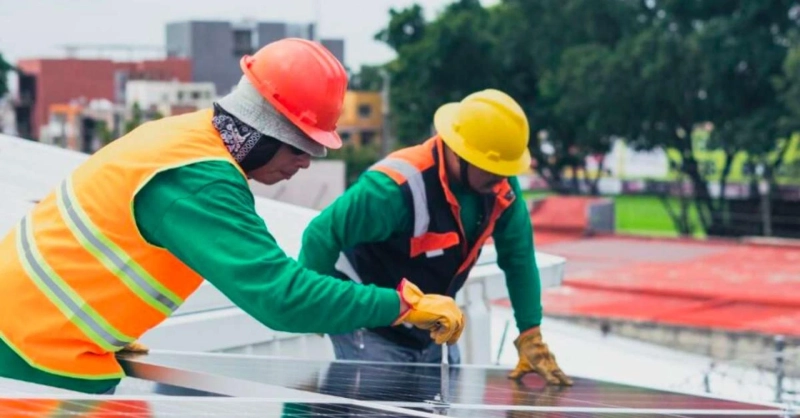Rent-to-own solar systems in South Africa work as a leasing agreement with the option to purchase the solar system at the end of the lease term. Here’s a general overview of how the process works and the various aspects to consider:
Process:
- Selecting a Provider: You start by choosing a solar provider that offers rent-to-own options. It’s advisable to get quotes from multiple providers to compare prices and terms.
- Credit Approval: Most providers will require credit approval as they are effectively lending you the money for the solar system.
- Signing a Lease Agreement: Once approved, you’ll sign a lease agreement that outlines the terms, including monthly payments, lease duration, and the residual fee at the end of the lease.
- Installation: The provider installs the solar system on your property, typically taking a few days.
- Start Using Solar Energy: After installation, you can begin using solar energy and potentially reduce your electricity bills.
- End of Lease Options: At the end of the lease, you can choose to purchase the system for the residual fee or return it to the provider.
Pros and Cons:
- Pros:
- No large upfront costs.
- Fixed monthly payments aid budgeting.
- Potential tax benefits.
- Reduced electricity bills.
- May increase property value.
- Cons:
- Higher overall cost due to interest.
- Possible limited warranty.
- Contractual obligations for 5-10 years.
- Early termination can incur penalties.
Qualification Criteria:
To qualify, you typically need to be a homeowner or business owner in South Africa, have a good credit history, a suitable roof for solar panels, and the ability to afford the monthly payments.
Financial Considerations:
If you can’t make payments, the provider might issue a warning, charge late fees, terminate the lease, or even sue for breach of contract. It’s crucial to ensure you can afford the monthly payments and to understand the lease terms fully.
Rent-to-Own vs Buying:
- Buying: Offers long-term financial benefits, immediate ownership, and no interest charges.
- Rent-to-Own: Suitable for those who can’t afford upfront costs or don’t want a long-term commitment. Offers flexibility but usually ends up being more expensive due to interest.
Conclusion:
Whether rent-to-own solar is suitable for you depends on your financial situation, electricity needs, property value considerations, and personal preferences. It’s important to compare options and understand all aspects of the agreement before proceeding.



